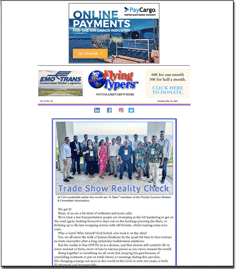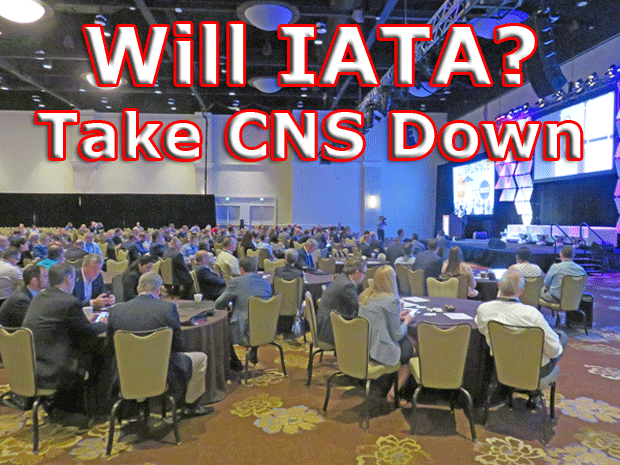 |
We
have been thinking about IATA as air cargo becomes more famous in the mainstream
media in regards to COVID-19 PPE flight performance.
In the face of all the attention, IATA has
shuttered all its cargo expertise in Geneva and Montreal.
What that might mean is that the voice of
CNS, the expertise of CNS as a viable organization, will be gone.
That would augur terrible things for air cargo.
The CNS Partnership Conference held yearly in various locations in the U.S.
is without a doubt the best customer conference ever devised by air cargo
for doing bottom-line business. Not to mention the value of the daily activist
work that CNS performs on behalf of the airlines and the forwarders.
To be clear, CNS is still in business on paper
and has a suit named Leger to sidestep the antitrust rule which brought
CNS into formation 30 years ago in the first place.
Right now you can really feel the pain of
airlines everywhere, that according to IATA, “will recover to
43% of 2019 levels over the year. Although that is a 26% improvement on
2020, it is far from a recovery.”
So, the attention to the plight of an industry
organization like CNS takes a backseat to all the cargo in the passengers’
seats, as these airlines work furiously to save their failing businesses.
But without some outcry even at the suggested
possibility that CNS will disappear, odds are you might wake up one day
to the news that gone is this jewel of a group born in America as the world’s
first organization dedicated to bringing the airlines and their forwarder
partners together.
In these things IATA would be acting not unlike
when, up until CNS President Tony Calabrese’s retirement, CNS had
retained a distinct image and semi-independent agenda; IATA, then reined
it in turning it into a regional office. In principal, IATA has every right
to do as it sees fit, as CNS is an IATA company.
The
Airline/The Forwarder
Last fall we asked
two industry stalwarts their views on CNS. This is what they said:
 “IATA
and Cargo Network Services (CNS) must recognize that CNS needs to maintain
a strong voice for the airline forwarder partnership,” said Jan
Krems, President of United Airlines Cargo. “IATA
and Cargo Network Services (CNS) must recognize that CNS needs to maintain
a strong voice for the airline forwarder partnership,” said Jan
Krems, President of United Airlines Cargo.
“The CNS Partnership is and will remain
a vital force for good as the industry works to get things back to normal.
“We need our trusted organizations
to bring us together and make sure that cooperation between all parties
not only maintains a single standardized system in place, but also advances
our offering through cooperation that touches every aspect of the logistics
supply chain.
“Air cargo cannot carry the airline
business alone.
“For all of us up and down the line
in all aspects of our industry to be as good as we want to be, we need
the unique opportunities for cooperation that the CNS advocacy offers
working for the advancement and betterment of the entire logistics industry.”
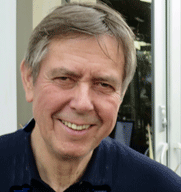 The late Joachim Frigger, Chairman of EMO Trans,
which has been a continued advocate of CNS Partnership Conference for
decades, said:
The late Joachim Frigger, Chairman of EMO Trans,
which has been a continued advocate of CNS Partnership Conference for
decades, said:
“The formation of CNS always was and
still is a great opportunity for meaningful dialogue between the airlines
and freight forwarders.
“We have always supported this goal
and hope that going forward, a balanced view of all participants and their
business interests can be maintained.
“I do regret that CNS has only been
created in the U.S. and that this model has not been expanded to other
worldwide areas like Europe, Asia, Middle East, and Latin America.
“The advantage of close cooperation
between partners becomes more evident in today's global markets, as geopolitical
developments create a great deal of division and uncertainty for all involved.”
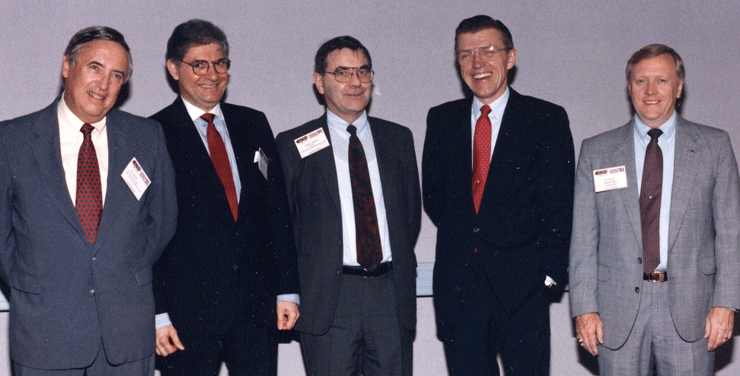
Networking at the second CNS Partnership
Conference in Dallas are (L to R) first CNS President Jack Lindsay,
second CNS President Anthony (Tony Calabrese), and original CNS Board
Members Brian Barrow and Buz Whalen, with American Airlines CEO Robert
Crandall between the two. |
Why CNS Matters
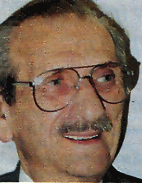 In
an era where everybody has a trade show or a webinar, it is good to share
once more the words of the late Richard Malkin, (left) the dean of air
cargo, who worked for the betterment of the industry and for CNS, and
then at 104 years of age shared these words. In
an era where everybody has a trade show or a webinar, it is good to share
once more the words of the late Richard Malkin, (left) the dean of air
cargo, who worked for the betterment of the industry and for CNS, and
then at 104 years of age shared these words.
“A quarter-century ago, I was invited
by the sparkling new Cargo Network Service to contribute my experience
to determine an answer to a vexing question:
“Should
CNS, or should it not, invest time, effort and money in mounting a truly
first-class air cargo conference?
“With the approval of CNS president
Jack Lindsay, the invitation had been extended by Anthony P. Calabrese,
then director of product development, who was aware of my intimacy with
the industry’s growing number of cargo conferences. I agreed to
cooperate.”
The Beginnings
“The scheduled airlines’ long-delayed
awakening of the shipper as an important source of revenue was enriched
by their flair for promotional ideas and public relations.
“Not much time passed before one of
the carriers invited a section of the shipping public—forwarders,
air cargo agents, industrial traffic managers and purchasing agents—to
a luncheon meeting where they would be treated to a lesson in air cargo
economics as well as to a tasty portion of roast beef.
“Competitor airlines gradually followed
with their own versions of satisfying appetites while getting across a
hard sell.
“It took a while, but as these meetings
became longer, more detailed, and more sophisticated productions, I gradually
became aware that something was amiss: In virtually every instance, the
airline representatives in the audience seriously outnumbered the customer
attendees.
“I editorialized on the problem. Didn’t
the lopsided audience division matter to the carriers? Were they delivering
the right message from the platform? What confined the users’ response
to disappointing limits? The few readers who bothered to answer failed
to cast convincing light on the puzzle.
“Tony Calabrese was one of my oldest
and closest friends in the industry.
“Typically, when we sat down with
cups of coffee to discuss the unfairness of an IATA rule or recent breakpoints
on electronic goods, it would wind up with criticism of a conductor’s
use of his baton or on concert artists’ foibles. This time, with
Jack Lindsay present at our meeting at CNS’ offices, Tony came right
to the reason for the meeting without the usual preliminary formalities:
“On the basis of my wide experience,
what is my personal reaction to a proposal to sponsor an annual air cargo
conference that would take it around the country?”
The Dreamer &
Doer Wins Out
“‘Oh, no,’ I groaned,
and I proceeded to repeat my argument especially when travel expenses
and hotel fees were involved. I predicted failure, and I foresaw myself
saying to Tony, ‘I told you so.’
“Tony was unfazed by my opposition,
arguing that CNS’ built-in membership of several thousand agents
represented a live pool of prospects. There existed an area of common
interest and values. I cited the example of the Civil Aeronautics Board’s
sponsorship of the one-day air cargo conferences scheduled in as many
as six cities throughout the United States.
“After the third meeting, appalled by the
paucity of active interest on the customer side, the board cancelled the
remaining shows.
“In Chicago, with John C. Emery, Jr. as
featured speaker, the meeting’s sponsor was forced to resort to
an invitation to a local business school’s transportation and export
students to fill vacant seats.
“Tony was probably aware of these incidents.
In his calm, evenly stated way, he bore down on his confidence in the
CNS agents’ homegrown support.
“This was basic.
“There were, too, the forwarders and shippers.
“In the end, Lindsay (after whose retirement
a couple of years later Tony was to succeed as CNS president) went along
with Tony, and the first of Partnership Conferences was born.”
The Great CNS Partnership Conference
“Over the years the Partnership Conference,
which sprang from Tony’s fertile mind, was recognized as one of
the world industry’s best.
“During the closing hours of the initial
meeting, Tony and I were sitting next to each other at a dinner table.
We chatted about the day’s highlights. He had an idea that he wanted
to implement next year, and before he could get into the details, he was
interrupted by an aide who handed him a sheet of paper. Tony glanced at
it briefly, smiled, then the smile broadened into a grin.
“Customer attendance 18% over airline attendance.”
“Whereupon he leaned over to me and sweetly
whispered in to my ear, ‘I told you so.’
Richard Malkin
In The Picture: The greatest air cargo people in
the world. Hopeful that we will all be together again. |




